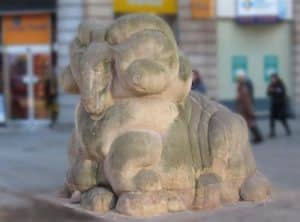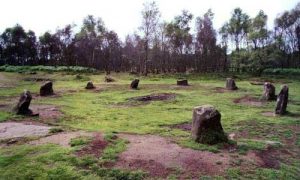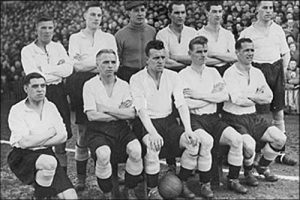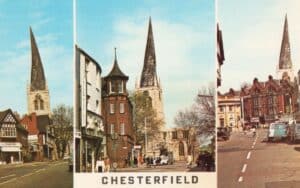K.B. GODDARD reveals one Derbyshire parish’s creepy custom of performing church services to empty pews full of ghosts!
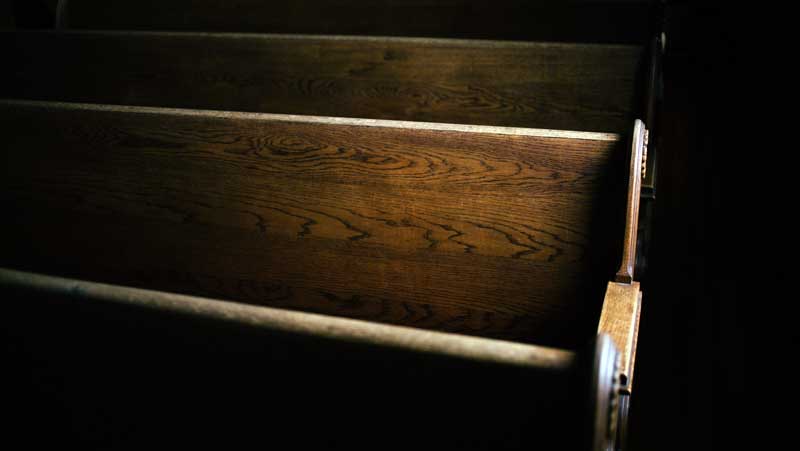
In my last article, I wrote of the custom of sitting in the church porch on St. Mark’s eve in order to see the spirits of all those of your neighbours who were to die in the coming year. However, such a belief is not confined to St. Mark’s eve. There is a legend of the same prophetic ilk attached to the Derbyshire village of Tideswell.
The church of St. John the Baptist in Tideswell is well known by the epithet the cathedral of the peak, but the village was also once home to an oratory or chapel, long since gone. Ebenezer Rhodes in his ‘Peak Scenery; Or, The Derbyshire Tourist’, (1824), referred to a phenomenon that was religiously believed in:
“From this place so long as it existed unseen choristers were sometimes distinctly heard hymning the sweetest strains as they seemed to pass in slow procession along the vaulted passages of the chapel to the chancel of the church where the sounds gradually died away This ceremony whenever it happened indicated the approaching death of some of the most important personages in the place.”
It would seem that those not deemed “important” were not considered worthy of a special performance in their honour by this ghostly choir.
Another story though bears a greater resemblance to the custom of porch watching that of the sermon for the dead. This is a Derbyshire legend that tells of a minister in the 1600s who was sent to a rural parish. He was well respected and got the church and parish into decent order.
The first tension between minister and congregation came when he was informed by some respected members of the later that he was expected to perform the sermon for the dead. There was some confusion on the part of the minister who asked the men what was the sermon for the dead. The embarrassed men explained that the minister of the parish was expected to go alone into to the church at midnight on the last Sunday of the year and preach a sermon to the folks in the gallery.
Well, this puzzled the minister further for he had never seen anyone occupy the gallery since he had arrived. But the congregation expected to attend the sermon was not of the usual kind, for it was said that the souls of all those who were to die within the coming year would rise up from their bodies and attend the church to hear the sermon for the dead.
The minister was horrified by what he heard. The bishop would be outraged. He could not sanction such superstitious nonsense so out of keeping with the reformed church.
The men pointed out that it was done every year and the whole parish expected it of him and that the occupants of the gallery might not be pleased with his neglect of them.
Eventually, when the last Sunday of the year came around the minister against his own better judgement and perhaps driven by curiosity, went to the church at the appointed hour. Thinking to himself what superstitious nonsense his congregation believed in he cast his eyes up towards the gallery and to his surprise, he saw that it was indeed occupied. He recognised the faces of some of his parish but one stood out clear to him above all others – his own. Looking back at him from the gallery was his own image.
Shocked and confused, he eventually managed to stammer out a blessing to his ghostly congregation. who went away again apparently satisfied with the minister. Sure enough, the new minister passed away within the year.
A correspondent to the Derbyshire Advertiser’s Notes and Queries in 1921 states that the origin of the tale is unknown and the village it related to would probably never be known, or else be claimed by multiple locations not limited to Derbyshire.
However, by the 90s folklore books were attributing the story to the Derbyshire village of Derwent. Unfortunately, if you were planning a trip to test the veracity of the tale you are in for a disappointment. The village has long since gone, sunk beneath the waters of the Ladybower reservoir.
K.B. GODDARD is a Derbyshire-based writer specialising in Victorian style ghost stories. She has published two short story collections so far and has plans for a third. Her work has also been featured on horror fiction site Shadows at the Door and on The Wicked Library podcast. She loves history, mythology, Sherlock Holmes and old ghost stories. Not necessarily in that order.
- Read her blog: www.kbgoddard.wordpress.com
- Follow her on Twitter: @kbgoddard
- Like her on Facebook here


